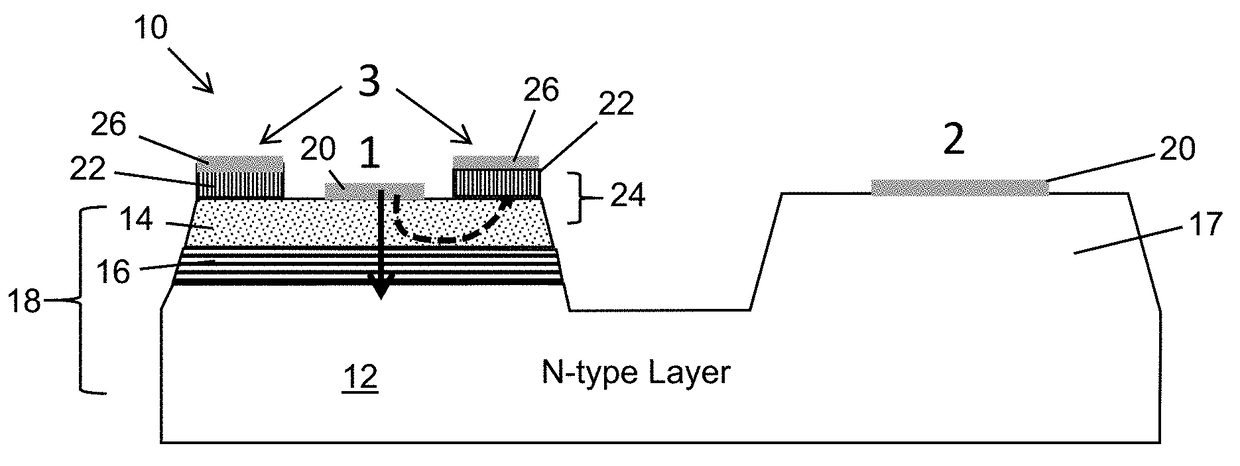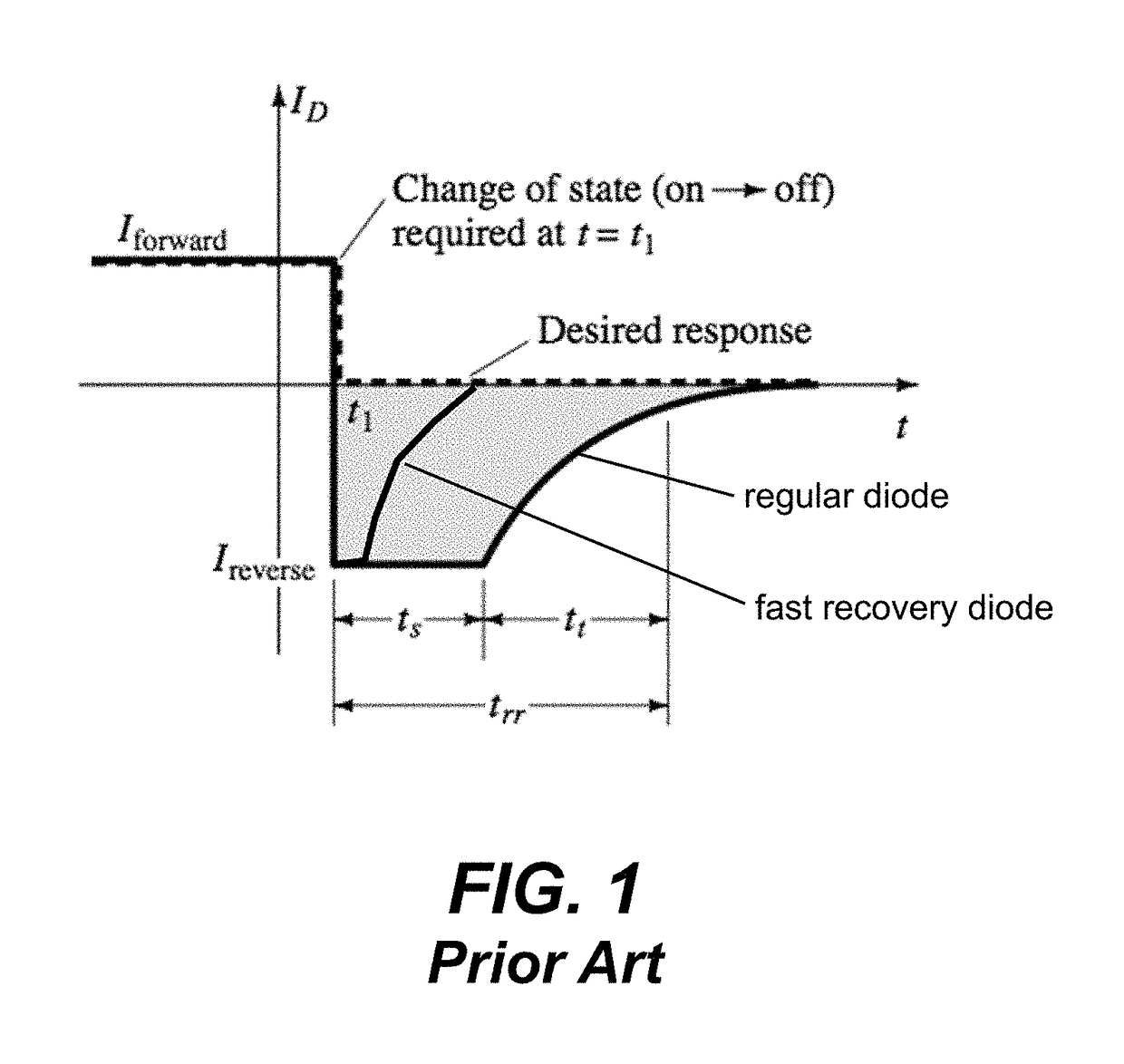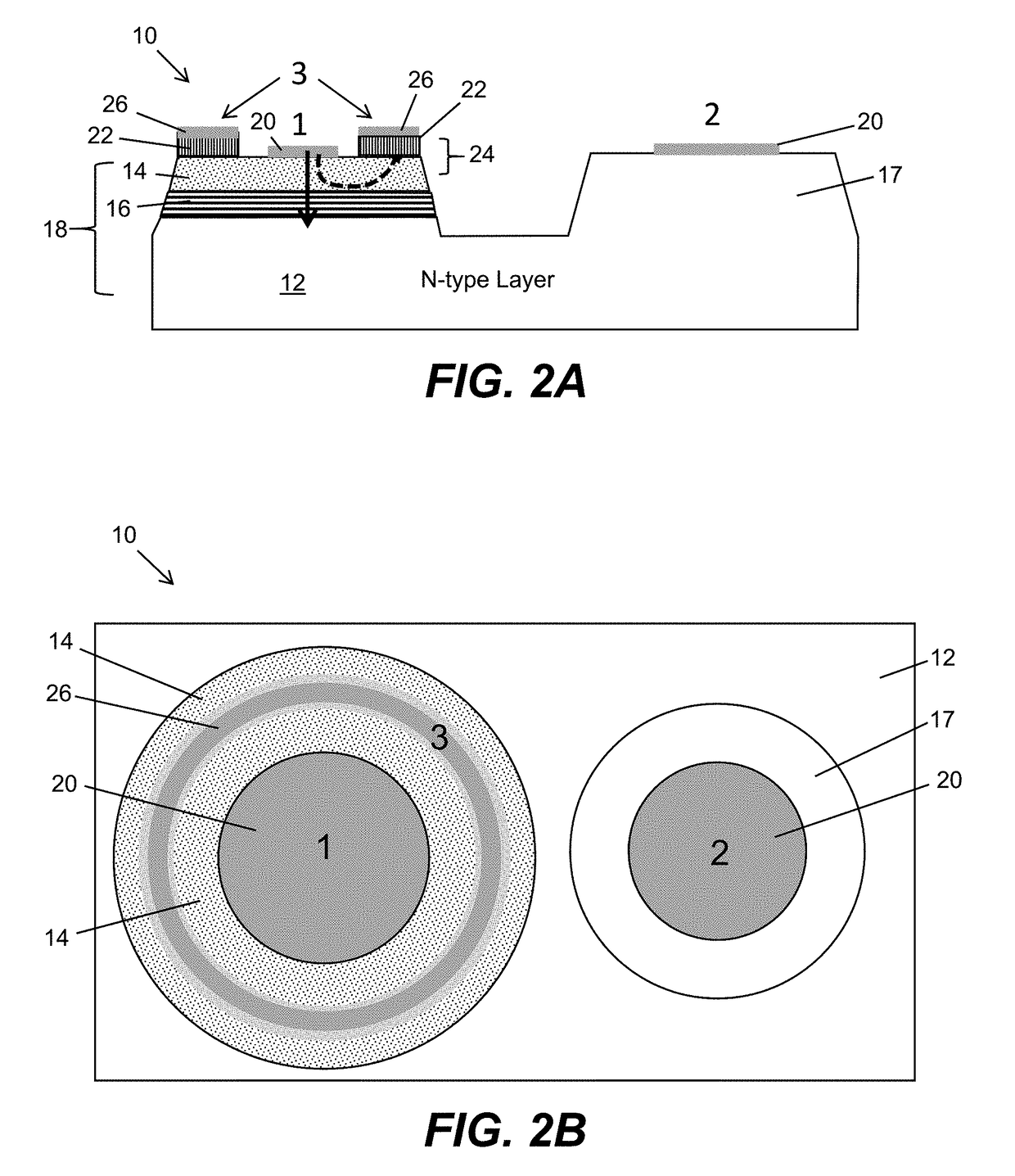Solid-state lighting structure with light modulation control
a lighting structure and solid-state technology, applied in the field of solid-state lighting structures, can solve the problems of protracted light turn-off time of deep uv leds, and relatively long recombination time of electrons and holes
- Summary
- Abstract
- Description
- Claims
- Application Information
AI Technical Summary
Benefits of technology
Problems solved by technology
Method used
Image
Examples
Embodiment Construction
[0028]The various embodiments are directed to SSLSs with light modulation control to attain faster on / off switching times. In one embodiment, an SSLS can have a main p-n junction region for recombination of electron-hole pairs for light emission and a supplementary p-n junction region proximate the main p-n junction region to supplement the recombination of electron-hole pairs. The supplementary p-n junction region can have a smaller electron-hole life time than the electron-hole life time of the main p-n junction region. In addition, the supplementary p-n junction region can serve to redirect the electron-hole flow direction away from the light generating structure of the device. With this configuration, the main p-n junction region and the supplementary p-n junction region can operate cooperatively in a light emission state and a light turn-off-state for faster light modulation. In one embodiment, the recombination of electron-hole pairs can occur in the main p-n junction region d...
PUM
 Login to View More
Login to View More Abstract
Description
Claims
Application Information
 Login to View More
Login to View More - R&D
- Intellectual Property
- Life Sciences
- Materials
- Tech Scout
- Unparalleled Data Quality
- Higher Quality Content
- 60% Fewer Hallucinations
Browse by: Latest US Patents, China's latest patents, Technical Efficacy Thesaurus, Application Domain, Technology Topic, Popular Technical Reports.
© 2025 PatSnap. All rights reserved.Legal|Privacy policy|Modern Slavery Act Transparency Statement|Sitemap|About US| Contact US: help@patsnap.com



